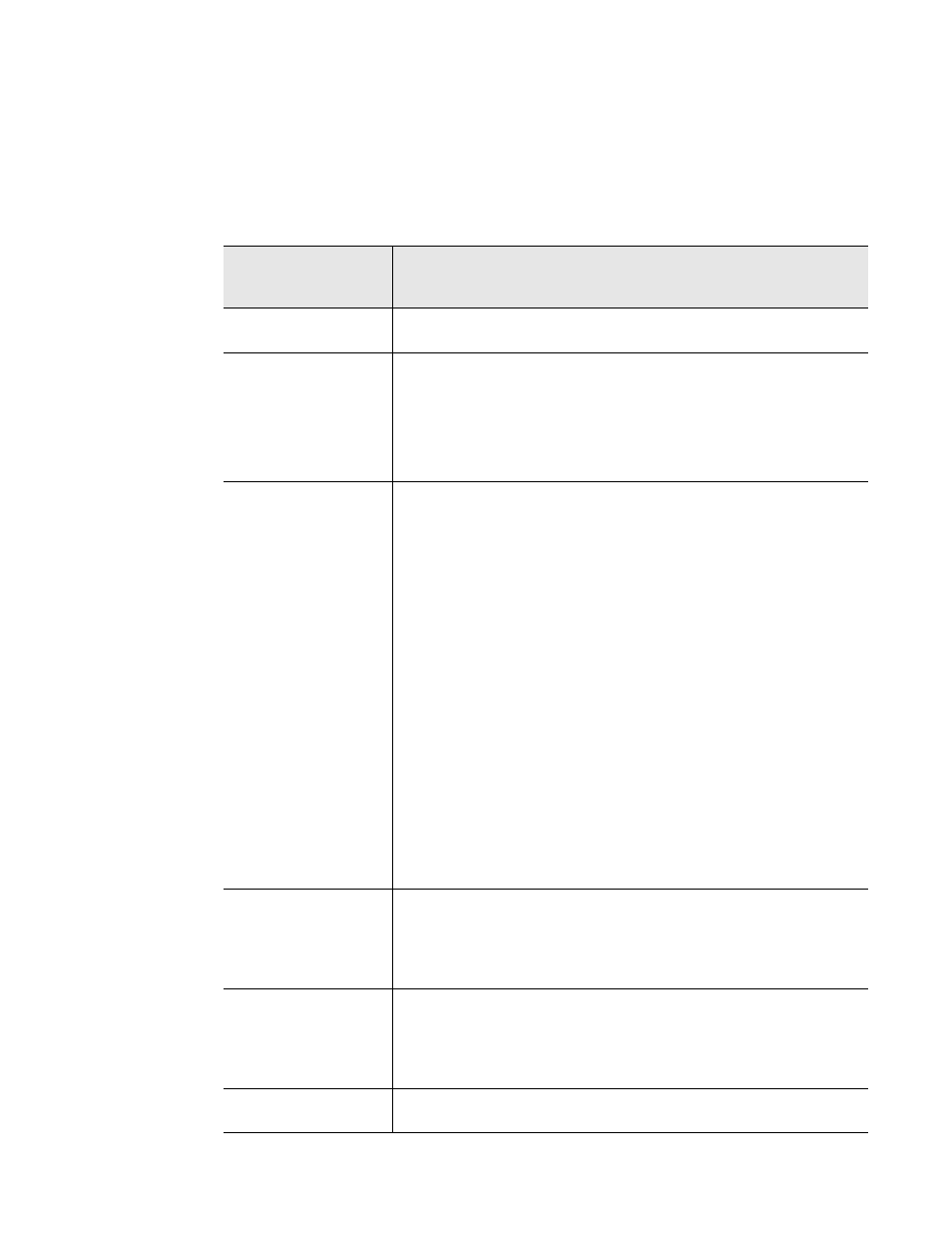9 modbus, Modbus, Table 4.6 – RLE LD2000 User Manual
Page 43: Modbus configuration menu options

www.rletech.com
43
970.484.6510
4
Web Interface
4.3.9 Modbus
Modbus Configuration allows users to configure Modbus (EIA-485 and/or TCP/IP) options.
//anything about N2 needed here?/
/
Table 4.6 Modbus Configuration Menu Options
Modbus
Configuration Menu
Options
Description
Modbus/TCP Slave
Unit Identifier
Specify the slave address used on the LD2000's IP port (1-254).
EIA-485 Port
Function
Allows users to select the function of the EIA-485 port. Selecting
this option tells the LD2000 whether it is a Modbus Slave (this is the
default, and most typical selection), a BACnet-MS/TP Slave, a
Modbus Master (for when the LD2000 is acting as a Modbus
Master for other RLE leak Detection Panels), or an LCD-240 (this is
a specialized option and is not typically used; see below for
configuration details).
LCD-240 Option
The LCD option refers to the text that will be displayed on the LDC
screen of the LD2000. The number, 240, references the amount of
text allowed for each label-2 lines of text, with 40 characters each.
After selecting the LCD-240 display option, click the submit
changes button. When the page refreshes there will be eight fields
to configure:
•
LCD240 Identifier-the system name.
•
LCD240 Normal Text-the text that will appear when the LD2000
is in a normal state.
•
LCD240 Alarm Text- the text that will appear when the LD2000
is in an alarm state.
•
LCD240 Leak Text- the text that will appear when the LD2000
detects a leak.
•
LCD240 Cable Break Text- the text that will appear when the
LD2000 detects a cable break.
•
LCD240 Contamination Text- the text that will appear when the
LD2000 detects a cable contamination.
Enter a time unit in the LCD240 Refresh Interval field to set the time
interval for the screen to update. Check the LCD240 Refresh on
Alarms only to have the display refreshes only when an alarm is
triggered; see Figure 4-14: LCD-240 Option on page 18.
EIA-485 Baud Rate
Sets the EIA-485 Port to 1200, 2400, 9600, 19200, or 38400 baud.
All the devices connected to the Modbus network must be set to
operate at the same baud rate.
Note: The baud rate for Modbus N2 is always 9600 and cannot be
changed.
EIA-485 Parity
Sets the EIA-485 Port to None, Even or Odd Parity. All the devices
connected to the Modbus network must be set to operate at the
same parity.
Note: The parity for Modbus N2 is always None and cannot be
changed.
EIA-485 Slave
Address
Set the EIA-485 Port's slave address (1-254). Each device on the
EIA-485 Modbus network must have a unique address.
